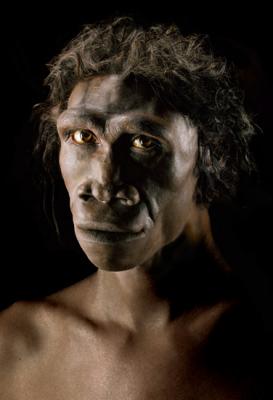Language, Cooperation, and Natural Selection

My comment to a post in Babel's Dawn which discusses the advantages of group cooperation in early humans and its effects on the development of language:
You are right to point out the importance of group selection, which becomes all the more important when a group has developed technologies (including language technologies) which give it a definite advantage over other groups. Bows and arrows and stone axes too. I suspect much "group selection" in human history has taken the form of genocide, the extermination of neighbouring tribes or ape-like cousins who did not quite speak "in the right way" or didn't interact profitably with the dominant group. To coin a phrase: the history of human evolution is a history of genocide. And a shared language is a key element in this tale. So, cooperation within the group goes hand in hand with competition with neighbouring groups; it may actually hone the edge of competition.
Edmund Blair Bolles's answer:
Long ago I was partial to the genocide idea myself. It is melodramatic and decisive, but I have changed my mind. There is no good evidence that it has been as important as the more familiar mechanisms we see in history: the stronger move in and push the weaker aside, either by shoving them off into highland or desert margins, or by dominating the older group and taking a region's wealth, or by absorbing the weaker so that they become part of the new power.
And my reply:
Well, call it "soft" genocide then. How do you "push" someone to the margin, in fact? Of course I agree all kinds of domination strategies are influential—including extermination through infectious diseases, which according to Jared Diamond also tends to wipe out less 'globalized' peoples. But we are not lacking in evidence for more or less deliberate genocides in recent history (take for instance the case of all-white Argentina or Australia). A story along that line has long been a matter of speculation as regards the spread of Homo Sapiens, of course—for instance in William Golding's The Inheritors.
0 comentarios